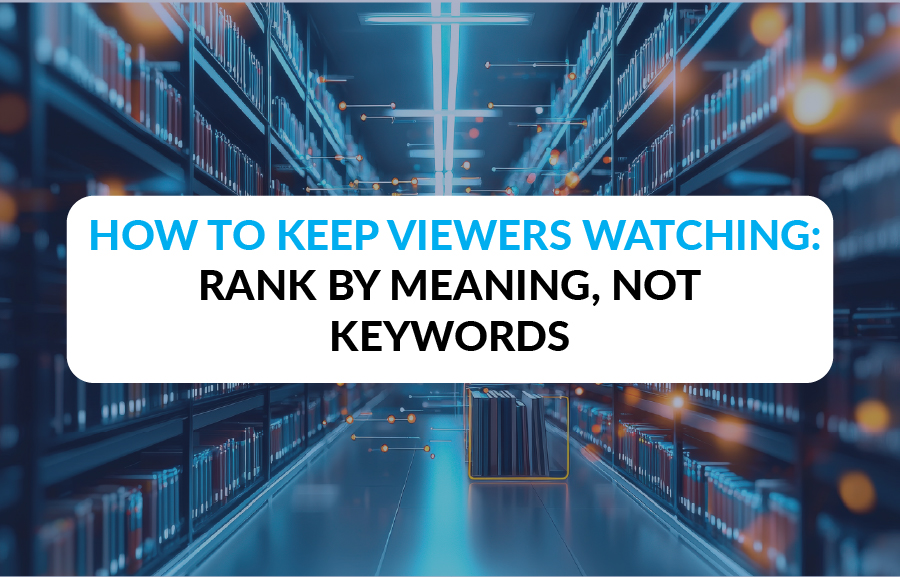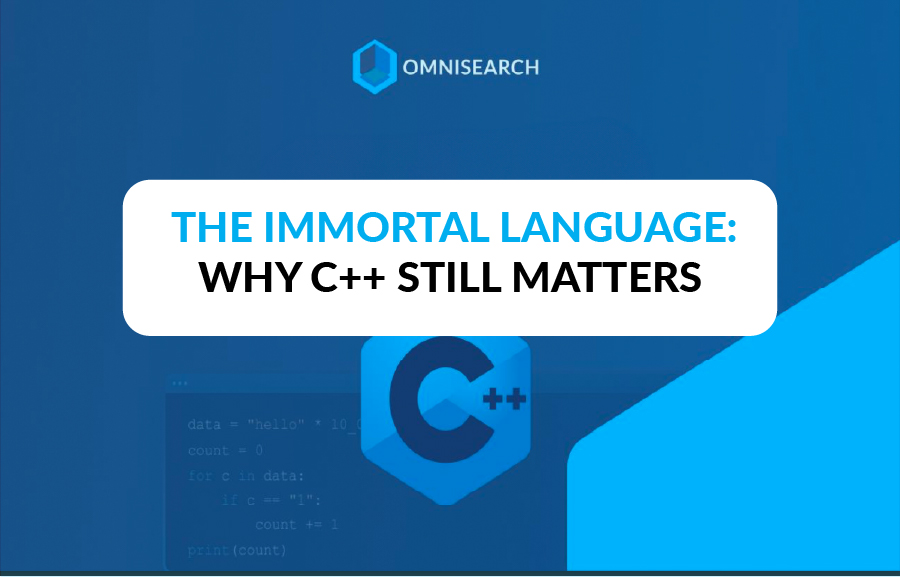AI meets VFX with Sandrino Pozezanac
No items found.
Published:
October 28, 2024
Topic:
Insights

This week, we’re thrilled to bring you a special edition of our blog! We enjoyed interviewing Sandrino Pozezanac, VFX Generalist and Senior VFX Compositor. Sandrino has lent his expertise to some major projects you’re probably familiar with, including Star Wars: Andor, Spiderhead, Godzilla x Kong: The New Empire, Black Adam, and Meg 2: The Trench, to name just a few. With a solid footing in the world of blockbuster films through his work at a leading VFX company, Sandrino is a true industry insider. We’re incredibly grateful he took the time to sit down with us.
In our conversation, we explored the growing influence of AI in the movie industry and how it’s directly impacting his work. Sandrino shared some fascinating insights, so let’s dive right in!
What are your general thoughts on the role of AI in the film industry today?
Right off the bat, I've decided not to be worried about it and embraced it as one of the tools technology is giving us. While my initial knee-jerk reaction was a bit of a smirk (and I'm talking primarily about generative AI), as a history enthusiast, I remembered all those stories about people being afraid of new technologies—like photos, the steam engine, and electricity—so I quickly decided I will not be a part of that crowd. In short, it's proven to be very useful, and I'll clarify how as we go along
Do you see AI as a tool that enhances creativity, or does it limit the artistic process in some ways?
I'd say AI itself is limited, but it enhances creativity and helps speed up the artistic process. While an NDA prevents me from talking about specific projects and my company’s workflow, I talk to people in the industry and can paint a general picture of the current situation. VFX companies don't use Generative AI (like Midjourney and DALL-E), mainly because it can cause huge legal trouble since they can't guarantee that the samples AI uses to generate an image aren't already licensed by another party. For that same reason, they can't use it as a reference either. Where AI comes in handy is in many other applications, in the form of machine learning that runs on local networks, where it is used primarily as a tool. Thanks to AI, the tedious processes of rotoscoping, paintouts, motion capture, and depth-map generation can speed up the entire creative process, resulting in quicker turnaround times for shots.
How has AI influenced your day-to-day work as a VFX designer?
When it comes to my day job as a VFX compositor, AI hasn't impacted my work at all (at least not yet). Given that I work for a big VFX studio, the work required throughout the shot(s) is very compartmentalized. The concept art for the shot is pre-approved, I get all the mattes and match-moves I need for the shots from other artists, so my job, in the end, is to marry it all together. That hasn't changed in the compositing department for the last 30 years.
But you know what the fun thing is? I'm a VFX artist in my free time as well, and that's where things have changed! For my personal projects, I can afford a bit more freedom when it comes to using AI. So when it comes to designing a shot from scratch, I'm using generative AI as a reference for the shot's framing and the general mood I get by prompting. Regarding quality, AI-generated images are not exactly usable for live-action projects, so I'm using them more as a glorified Google image search engine. Then it's a matter of old-school labor of finding the stock elements and 3D assets to put in the shot. If I have characters I need to put in the shot but they weren't filmed on a green screen, I can again use AI machine learning tools to create custom mattes for them. In the end, it turns out you still need to go through all the processes you'd go through without the assistance of AI, but you can do that a bit quicker.
Are there specific tasks or processes AI has made more accessible or efficient for you?
Definitely, and again, speaking as a lone artist who doesn't have full studio workflow support outside of working hours, machine learning tools can incredibly speed up the entire process. Lots of people take for granted the simple task of “just” putting CGI elements behind the characters or on-set objects. That's where the art of rotoscoping comes in, which is meticulously creating masks (mattes) for the objects that are in the foreground. That means animating a mask for every object, for 24 frames for one second of film. Needless to say, not many artists enjoy doing that, and luckily AI is getting better and better at it. Temporal stability is still an issue in most cases, but it gets you roughly 75% of the way there. Creating depth maps is also one of those tasks, if you want to create custom depth of field or composite volumetric fog/smoke into your shot. It was even more time-consuming than rotoscoping, but AI makes it way easier. Then there are AI tools for painting out elements, relighting, upscaling, or retiming. None of them are 100% perfect by default, but a talented artist knows how to deal with those limits and push the final shot to perfection.
Are there aspects of VFX design that you believe AI will never be able to replicate or replace?
Yes! For one, the intention behind the individual elements as well as the entirety of the shot. Every shot has an artist, or a team of artists, who want to convey something through their creation. On the technical level, the biggest challenge for AI is temporal stability. While some newer models look good at first glance, the quality control we do in big studios would never approve them as a final result. Also, one of the most important aspects of VFX design is customization. When you craft a shot from the very beginning using the standard industry tools, you're able to customize every single aspect of it without affecting other parts of the shot, and then propagate it to other shots in the sequence, scene, or entire film. Those elements are created layer by layer, as separate elements, and that's what offers the majority of control. AI-generated images are baked in, and there's no way to control all those elements in the picture. You absolutely need to be able to do that if you work with clients, and that's something AI can't do, and most probably never will.
The recent Hollywood strike raised concerns about the impact of AI on jobs in the entertainment industry. What are your thoughts on this issue?
When it comes to actors, I can fully understand their fears behind this issue. Replicating their voices and likenesses using AI without their consent can be a huge issue. Luckily, those things can be controlled for now by the pure fear of film studios getting sued by those actors if they decide to go that route. But not everything is that bleak, since AI can be put to good use if done gracefully in cases where an actor dies in the middle of production and the family gives their consent. Such scenarios happened during the production of Gladiator with the late Oliver Reed, Furious 7 with Paul Walker, and perhaps most famously with Brandon Lee on The Crow. Back then, in all cases, AI was nowhere in sight, but today it would make things much easier. But AI was also one of the points discussed during the writers' strike. My opinion here is pretty much the same as the writers': AI tools like ChatGPT should be allowed as a research tool used by the writers themselves, not the studio as a basis for a script that can then justify lower fees for the writers. But here I'll be a bit more subjective and say, no matter if the script was written with the assistance of AI or not, I can't feel a single thing for the newer projects either way (with some exceptions). As an audience member, I just want to see a good and entertaining film, cleverly written with characters that act logically, but more and more it seems that I'm asking too much.
Could AI eventually take on more creative roles besides its current technical applications, such as directing or writing?
Here I'll have to be more critical and simply say no. To direct a visual or even auditory artwork, one needs to have a complete understanding of the story matter, the character motivations, the setting, the entire film language, and the core message it wants to convey. The choice of one option over another is what makes a director, and I'm of the opinion AI will never be able to do that. Putting one video next to another, even if it has similar elements such as characters or the setting, is not directing. As for writing, it's already proven we can write basic stories using ChatGPT, but it takes a living person to edit it further into something usable for production. And as long as there's a living person editing or prompting on the other side, AI can't be given credit for any actual creation.
Do you believe there's a risk of AI being overused in films, potentially leading to a loss of human touch and originality?
If the big film studios don't learn the lesson and continue to chase profit without securing proper time for the creative process, that could be the case. Luckily, that won't sit well with the audience, resulting in lower revenue, so that trend will die out quickly if it even happens. But also, you don't need to include AI in film production for it to be labeled as “soulless” and “unoriginal.” Just look at the latest live-action remakes of famous animated films! Those are all handcrafted (both the original and live-action versions), and yet they can't escape the same label, so it's all subjective and the audience is unforgiving. We all crave originality, and if we don't get it, the studios learn that the hard way.
Can you share a personal experience where AI significantly impacted your work, either positively or negatively?
Luckily, my encounters with AI have all been positive so far. Perhaps the most useful case was consulting with ChatGPT regarding salary numbers for my sector and experience. I'm incredibly grateful for that. But for a more hands-on approach, I worked on a short film where I needed to replace the entire background behind the actors in a shot that wasn't filmed on a green screen. Due to production hiccups, I was given an unreasonably small amount of time to do it. More precisely, something that would require at least a week of work needed to be done in two days. I prepared the matte painting and did my own motion tracking, but the rotoscoping was the process that took the most time. Luckily, I researched AI options for it, and after some quick tests, I got the desired result by the end of the first night. I spent a few more hours refining the result, and I managed to deliver the entire scene by the deadline. It wouldn't have been possible with any other solution or tool up until that point.
Thank you, Sandrino, for your insightful answers on the impact of AI in your industry. I’m looking forward to our following discussion and the new perspectives you’ll bring!
Anytime! It was a pleasure!






